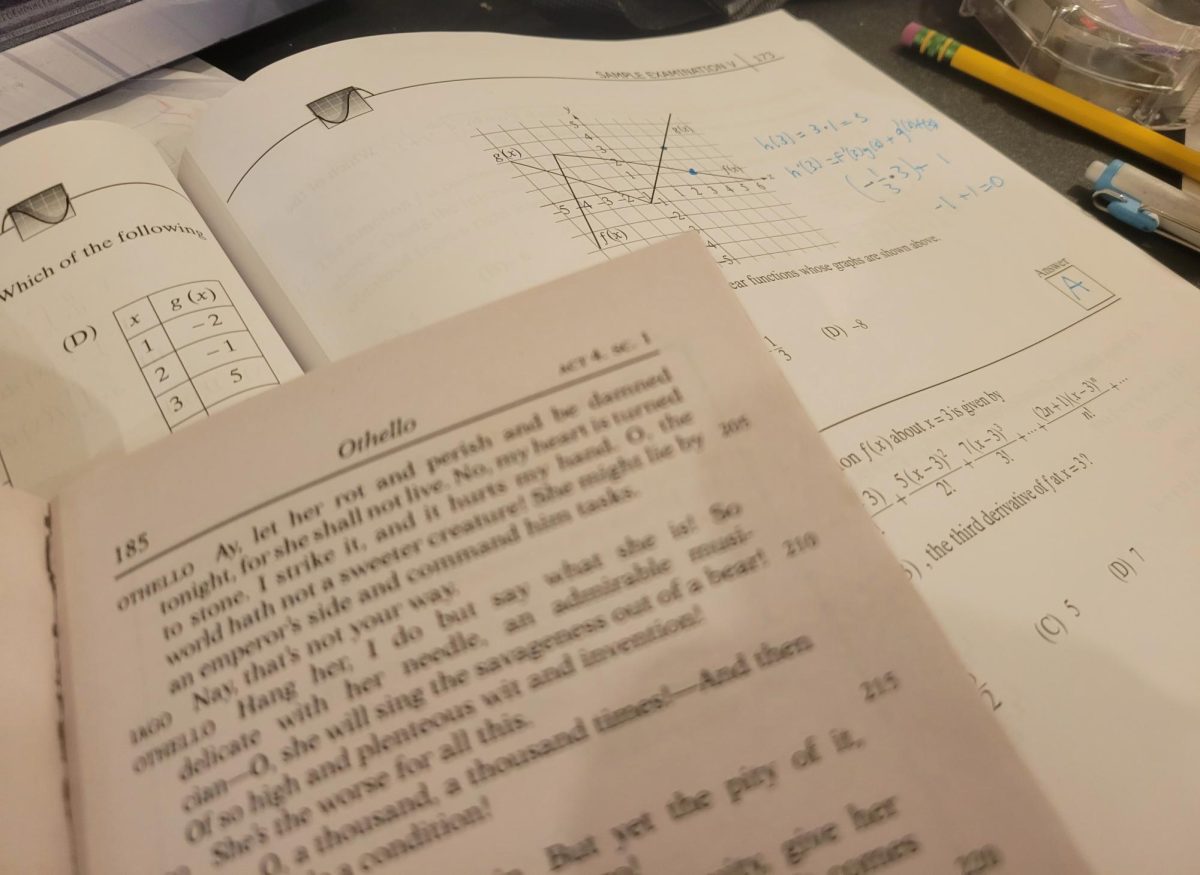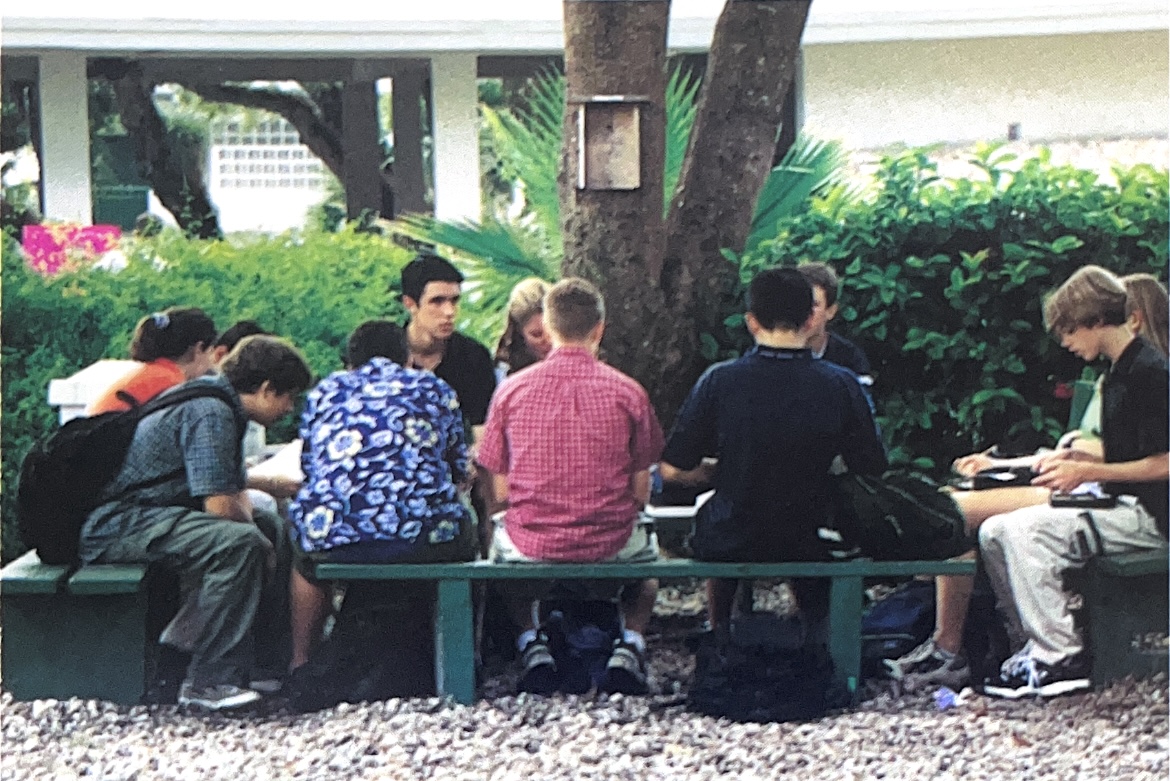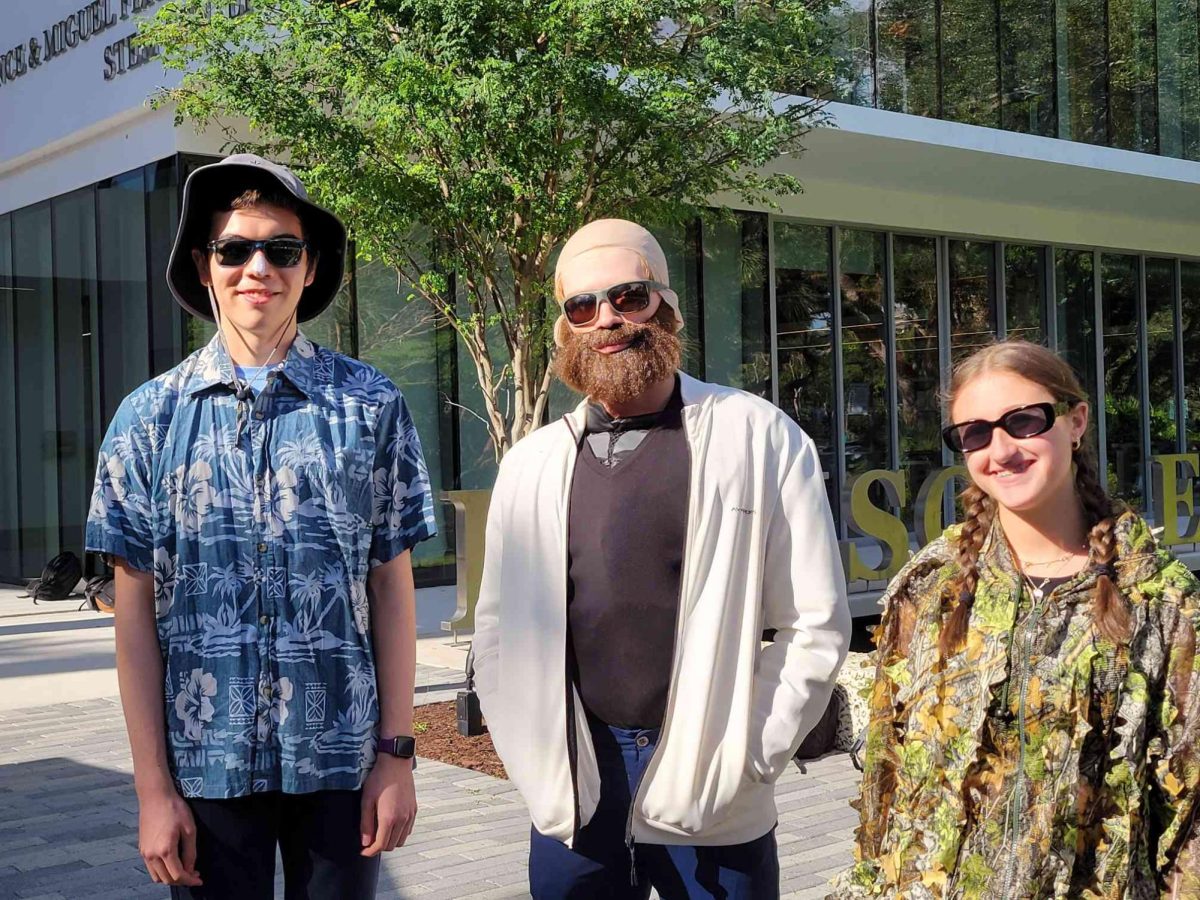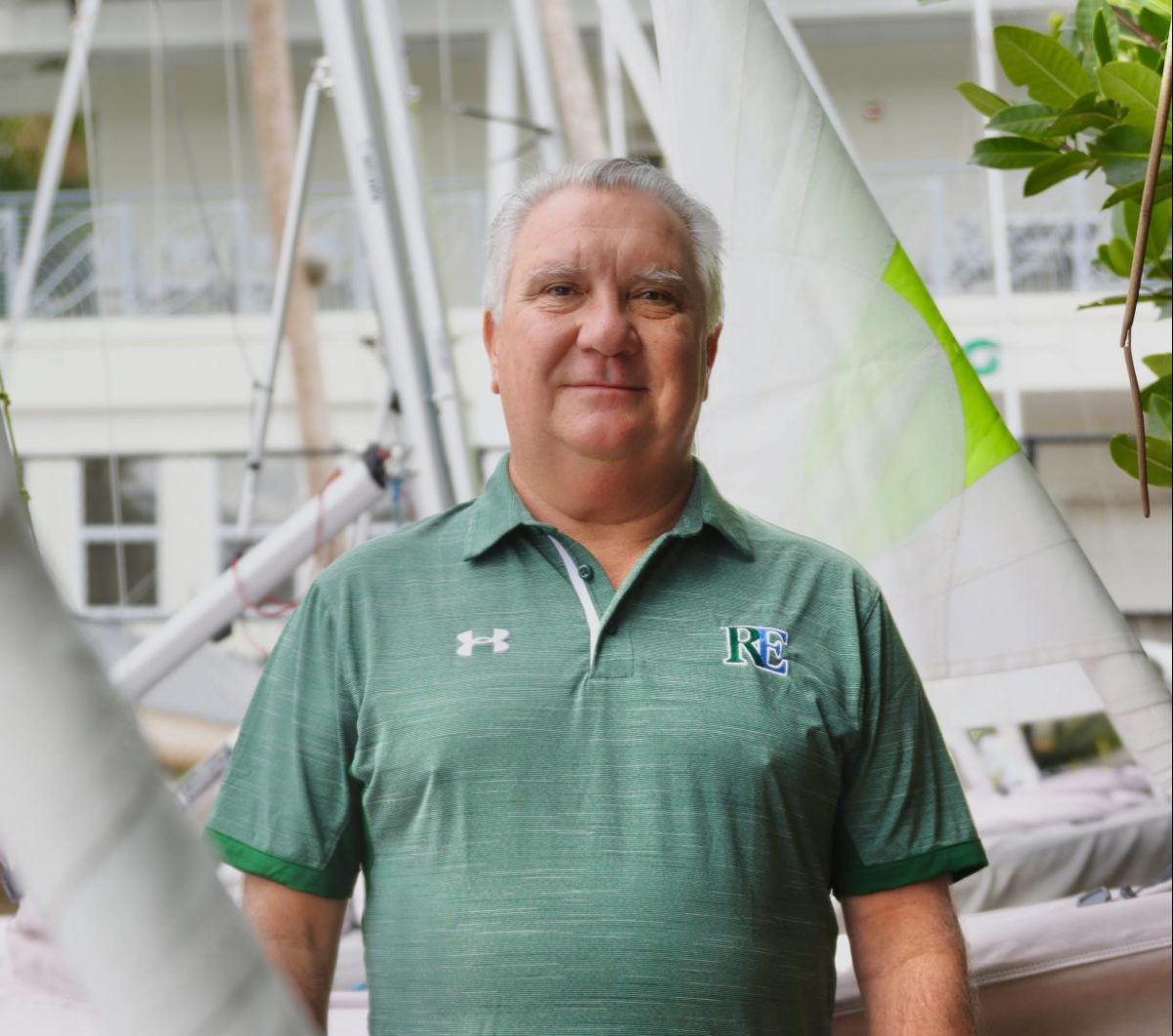To be a STEM kid or a Humanities kid? That is the question.
And it is a question that plagues many on their academic journey, from toddlers playing with doctor kits to 19-year-olds choosing their major. Ransom Everglades is no exception. In fact, the binary of STEM vs Humanities affects students in every grade, from rising sophomores deciding between Advanced American Studies or Advanced Chemistry to seniors who must decide how to package themselves in college applications. Student sentiments on this arbitrary yet influential choice reverberate across campus. It is common for someone to identify heavily on either side of the spectrum, while others find solace in leaving the whole system behind. Is the division between school subjects essential for self-discovery, or does it create stereotypes and burden students with crushing expectations?
Ransom Everglades contains a wide variety of students who have many different academic interests. Avid math tutor Solon Sun ’25 has enjoyed mathematics for as long as he could remember, and he would not have his academic career any other way. Other students take interest in literature and history and are happy to be known as “Humanities kids.” Jillian Demos-Brown ‘25 recalled how, “in my elementary school, the class I remember liking the most was US History.”
However, there are many who feel overwhelmed by the need to fit into an academic role, especially when preparing for college. Ale Andrade ’25, a well-known drama student, admitted that “the whole idea of labels is tiring; people shouldn’t feel the need to confine themselves.”
From the perspective of college counselor and History and Social Sciences teacher Dr. Brandon King, college is a big factor driving these self-identifications. “There is some encouragement to have an academic identity at a young age, so yes, I have seen many students say they are one or the other and proclaim that to me even in 9th grade.” Many students want to appear like the strongest version of themselves and advertise themselves in a way that they believe colleges will like.
AP Psychology teacher Mrs. Jenny Carson explained that when it comes to students’ self-assigning academic roles, “Passion is a driving factor, although I also think success measured by grades and how quickly someone can pick up a topic ends up outweighing someone’s self-assigning.”
Mrs. Carson brought up another factor, however: the way that students can be influenced by societal perceptions of their cultural or ethnic identities. “There are expectations placed on certain people about how they should perform based on their culture or ethnic background, and these students face something called a stereotype threat,” she explained. “Society is telling them how they should perform based on factors that have no correlation with their performance.”
Stereotype threats have been shown to disadvantage minority groups in academic settings. One such study from the Journal of Experimental Social Psychology showed that when a group of women took a math test and were told that the test would be difficult for them, their performance was significantly worse than when another group of women were not told the disclaimer. Another study from the National Institute of Health showed that black individuals did better on standardized tests when there was a fellow black proctor, compared to when a white person proctored the exam.
When asked if societal biases impacted student’s preferences towards certain school subjects, Dr. King said that “we see a strong representation of women in humanities disciplines, and an overrepresentation of men in STEM fields. Along racial lines, we see a lot of black and brown children push away from STEM fields early in their education, to the point where they do not end up being STEM majors.”
Positive reinforcements also play a role in shaping these academic identities. “I never thought in terms of STEM or humanities when I was young, I only thought in terms of what I got external reinforcement from, what older people and teachers saw I was good at and what they encouraged me to pursue,” Dr. King said.
Parents also tend to discourage their children from pursuing the humanities and social sciences out of concern for their child’s ability to live a comfortable life. Dr. King explained that in academic environments, “parental discouragement is huge,” and that “many tend to put STEM fields as far more valuable since they offer more lucrative careers.” These rationalizations are somewhat supported by evidence; STEM-based majors such as CompSci and Electrical Engineering have higher return on investment than Humanities majors such as Psychology post-undergraduate. Studies show that engineering majors are employed at a significantly higher rate than arts or humanities majors after they graduate.
With all this stress from self-assigning roles, a question arises: do academic roles in high school determine what you do for the rest of your life? Director of College Counseling Patrick Tassoni discussed how these stereotypes can hold people back. “Some students might think STEM is super hard or only leads to certain jobs, while Humanities can be seen as not so practical. These ideas can hold students back from exploring all sorts of interesting things,” he said. “It’s important to challenge these stereotypes and realize that both STEM and Humanities offer valuable skills and tons of career options. Students should feel empowered to make choices based on what they are genuinely interested in and what they want to achieve.”
Tassoni also pointed out that students can use these identities to excuse poor performance, or to shut down academic pathways that might otherwise have ignited their passion. “I’ve noticed that sometimes if a class doesn’t go perfectly, students tell themselves a whole story about it. Like, ‘I’m not great at math, so I’m going to skip physics.’ or ‘I didn’t do well in history, so I should stick with math,’ even if they’re not crazy about it,” he said. “It’s this idea that if you’re not acing it, why bother? But here’s the thing: there are plenty of colleges out there that don’t require perfect grades and can still get you where you want to go. You don’t need straight A’s to get into a great college. It’s all about finding the right fit and giving yourself the chance to explore what really interests you.”
And at the end of the day, preferences in high school can sometimes just be, well, preferences. Alumna and RESD coach Alexandra Henriquez ’22 recalled that she stayed open-minded in her choices while in high school. She emphasized that “the interplay between [STEM and Humanities] classes was really valuable to figuring out what I wanted to do in my future. As a high school student, the point of high school is to figure out what you like and what you are good at.”
For Dr. King, what students do with their lives should boil down to what truly drives them. He advised parents and students “to find that thing where you feel like you have no choice, but to do it.”
Are you a STEM or Humanities kid?
Take this Personality Test to Really find out!
https://www.opinionstage.com/page/1b992871-349a-4bb4-a1bc-a96a0d250286







